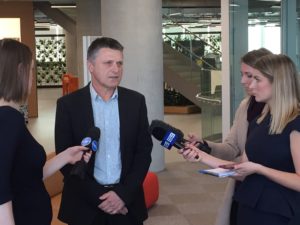The economic and employment impact of the closure of the Arrium steel works and mine could cost South Australia in the order of three quarters of a billion dollars and some 5000 jobs.

Analysis by Flinders University’s Australian Industrial Transformation Institute shows the Whyalla workforce would decline by about 40 per cent with between 3550 and 3940 full time jobs lost, while statewide job losses would be between 4760 and 5360.
The report calculates Whyalla’s regional economy could shrink between $490 million and $530 million. The impact on South Australia would be between $678 million and $770 million.
Flinders AITI Director Professor John Spoehr and Bond University Professor Barry Burgan have undertaken modelling to set out a conservative case, a base or median case, and a high case, should Arrium cease.
‘Whichever scenario you look at, the outlook is extremely serious. In some senses Arrium is too big to be allowed to fail, given the impact in Whyalla and to the state as a whole,’ Professor Spoehr says.
‘For every three jobs lost directly in region at the steelworks, the mine, and in transport linked to these operations, there will be another one job lost within the Whyalla region in areas such as retail trade, health and education and recreation and personal services. This is about more than metal.
‘The scale of the impact relative to the size of the labour market is significant.
‘It would have a far greater impact on Whyalla – with flow-on effects statewide – than the closure of the auto industry in Elizabeth.
‘Latest unemployment figures reveal a significant decline in full time male employment. Should an Arrium closure coincide with the end of car making operations it would precipitate a sharp rise in South Australia’s unemployment rate, threatening 10 per cent.’
Professor Spoehr says, however, that these scenarios can be prevented by short and medium term measures.
He argues the report presents a timely opportunity to assess the value and importance of government efforts to ensure the industry’s survival, and provides a strong case for action.
‘A national steel industry transformation strategy is needed to help Arrium and other steel makers move up the value chain and achieve sustainability,’ Professor Spoehr says.

